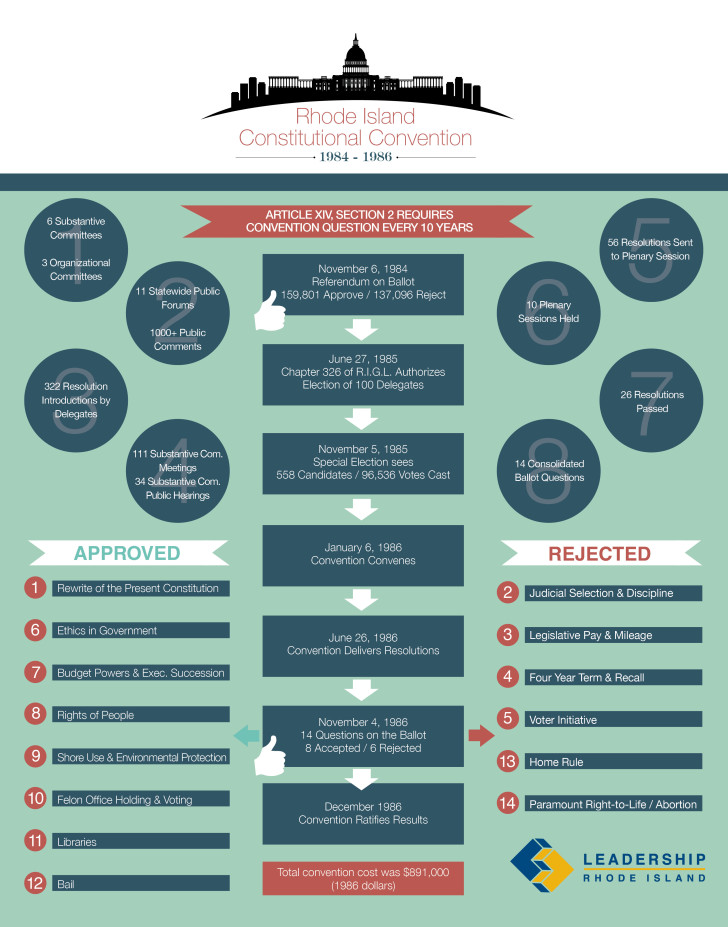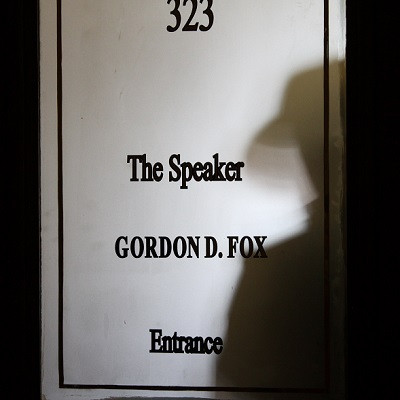RI Corruption Topped National News 20 Years Ago: What’s Changed?
Saturday, August 23, 2014
More than 20 years ago, a national ABC news segment featuring Sam Donaldson dubbed Rhode Island the "most corrupt state in the the country" -- has it changed since then?
The over nine minute piece, from what appears to be the early 1990s, points to the state's long tradition of mob influence, the banking crisis, and then-second term Providence Mayor Buddy Cianci's resignation from his first term in office, after pleading nolo contendere to assault charges.
Now in 2014, a year saw the historic State House raid by the FBI and State Police on the Speaker's office, a renewed focus on the failed 38 Studios deal, and recent ethics investigations announced targeting State Representative Peter Palumbo and Providence City Council President Michael Solomon - and Cianci running for a third tenure at the city's top post -- is Rhode Island any different nearly 25 years later?
"Because we're so small, we tend to examine things in greater detail, but I'll tell you that the structure of examining legislators and officials has gotten much better than 25 years ago," said former Congressman Bob Weygand, who was involved in the FBI sting operation of then-Pawtucket Mayor Brian Sarault for bribery. "The issues that arise now seem to be that people are trying to find new ways to do the same old stuff. There are times when you wonder, what they heck are thinking, why did they do this?"
Historical Perspective
"The RISDIC scandal that [Judd] Rose mentions [in the clip] brought no reform in 1991. Rose asks Arlene Violet about a lot of things that were not illegal. She agrees: "And not illegal," said noted historian and former Director of Common Cause H. Philip West Jr. "We made a lot of things that had been routine illegal, including where we:
- Prohibited nepotism by government officials (1991),
- Outlawed “revolving door” jobs for state appointed and elected officials (1991, 1992),
- Streamlined and strengthened the Ethics Commission; made prosecution of conflicts-of-interest public for the first time (1992),
- Created tougher conflict-of-interest standards and increased penalties for violators (1992),
- Reformed campaign contribution disclosure and limits, outlawed corporate contributions and personal use of campaign funds (1992),
- Created a process for reducing or revoking the pensions of officials who commit crimes in office (1992),
"And the crucial reform--separation of legislative, executive, and judicial powers--came barely ten years ago," continued West. "I believe our rate of corruption is lower than it was, particularly in cities like Providence and Central Falls. Both have enacted tough new ethics laws, including loss of pension for crimes in office."
Current Common Cause Executive Director John Marion offered his perspective on the status of corruption in the state.
"Rhode Island isn't seeing the same sort of high level corruption in all branches of government the way we did twenty and thirty years ago when we had almost simultaneous scandals in all three branches of state government. We still have serious problems, and we still rank highly, but we have corrected many of the problems seen in that clip. For instance, twenty years ago the voters took pensions and per diems away from legislators and replaced them with a salary and health care. Although some like to make light of which legislators voluntarily make co-pays for Blue Cross and Blue Shield, that pales in comparison to the abuses of the old legislative pension system. And when the Licht pension sweetener was exposed the legislature quickly and quietly removed that," said Marion.
"That doesn't mean we should be or can be complacent as the raid on the State House early this year demonstrates," said Marion. "In many ways the Providence mayoral race may come down to a referendum on whether people want to return to the days we saw portrayed in that clip."
Practical Applications
Mike Ritz, Executive Director of LeadershipRI, talked to addressing issues of ethics - and corruption -- in the program.
"In 2010 we brought everyone in the class in one by one, and asked what are the perceived weaknesses of the state, and strengths," said Ritz. "What was striking, the "strengths" were all varied, and diverse -- quality of life was one, for example. However, "perceived weaknesses" was the same -- corruption. It surprised me, I thought there would be others, such as unemployment, but corruption was almost unanimous."
"We know there are greedy selfish people looking out for their best interests when they harm other people," said Ritz. "If we had solid system with checks and balances that were effective, bad people would struggle to be bad people. Systemic efforts need to be put into place."
Ritz noted the most recent LeadershipRI class voted to hold a mock Constitutional Convention, which is on the ballot for real in Rhode Island this November, for voters to decide whether or not to hold one.
"One major point to make is that [the class] could have put anything under the sun at their top priority in the mock convention, but their highest priory was ethics reform," said Ritz. "If I'm not mistaken, they voted to have the bill passed. And the General Assembly, meanwhile, did nothing this year."
"Now will it pass this year is another question," said Ritz. "The odds of voters deciding for the state to have one are tough. There's not much information getting out on it right now. Most people are untrusting of things like that, and changes like that. The folks advocating for one have got their work cut out for them."
Moving Forward?
"Rhode Island has made real progress, but much remains to be done. The culture of corruption has not vanished, but we had to outlaw specific behaviors, and we did," said West. "History is not doomed to repeat itself, but the struggle against corrupt public officials will continue. Thankfully, as a direct result of scandals, Rhode Island now has some of the best government transparency and ethics laws in the nation."
Ritz quipped of the news segment, "It seems to be mostly about the arrests -- maybe we just have better law enforcement than other states."
"It really is a factor, trying to put a positive slant on things," said Ritz. "It's important that people feel like they can make a change, and they're in fact obligated to. That's the message I tell LeadershipRI alumni all the time -- don't just point fingers."
"When they complain about the "leadership" in the state, I say to them, you are the leadership," said Ritz.
Related Slideshow: Rhode Island’s History of Political Corruption
Related Articles
- New Law Would Target Public Corruption
- Former North Prov. Councilman Convicted in Corruption Case
- Doherty Announces for Congress: Jobs, Anti-Corruption Key Themes
- NEW: Sentences Handed Down in North Prov. Corruption Case
- EXCLUSIVE: North Providence Corruption Probe - New Allegations
- NEW: Providence Launches New Crackdown on Corruption
- RI Campaign Update – Kilmartin Would Expand Public Corruption Unit
- Special 920 WHJJ Radio Report: Corruption in Providence
- Podcast: Corrente on Corruption in PVD Play Download
- GoLocalTV: Collins Takes On Big Government, Corruption
- NEW: Moreau Pleads Guilty to Federal Corruption Charges
- RI Corruption Topped National News 20 Years Ago: What’s Changed?
- NEW: Guilty Pleas in North Providence Corruption Scheme
- Dan Lawlor: Political Corruption is Nothing New to Rhode Island
- Travis Rowley: Crowley’s Corruption, Not Flanders’ Folly
- The Scoop: Candidate Levies Corruption Charge Against Taveras
- NEW: Central Falls’ Mayor Unveils Plan to Tackle Corruption
- Timeline of Events in Providence Scrap Metal Corruption Lawsuit
- Rhode Island’s Biggest Political Corruption in Modern History
- Block Calls for End of Political Corruption in Rhode Island
- State Report: Medical Pot, Central Falls Corruption & Educating Poll Workers
- NEW: Former Central Falls Mayor Pleads Guilty to Corruption Charges
- New Revelations in Landfill Corruption Case
- Wallin Tough on Corruption?


























